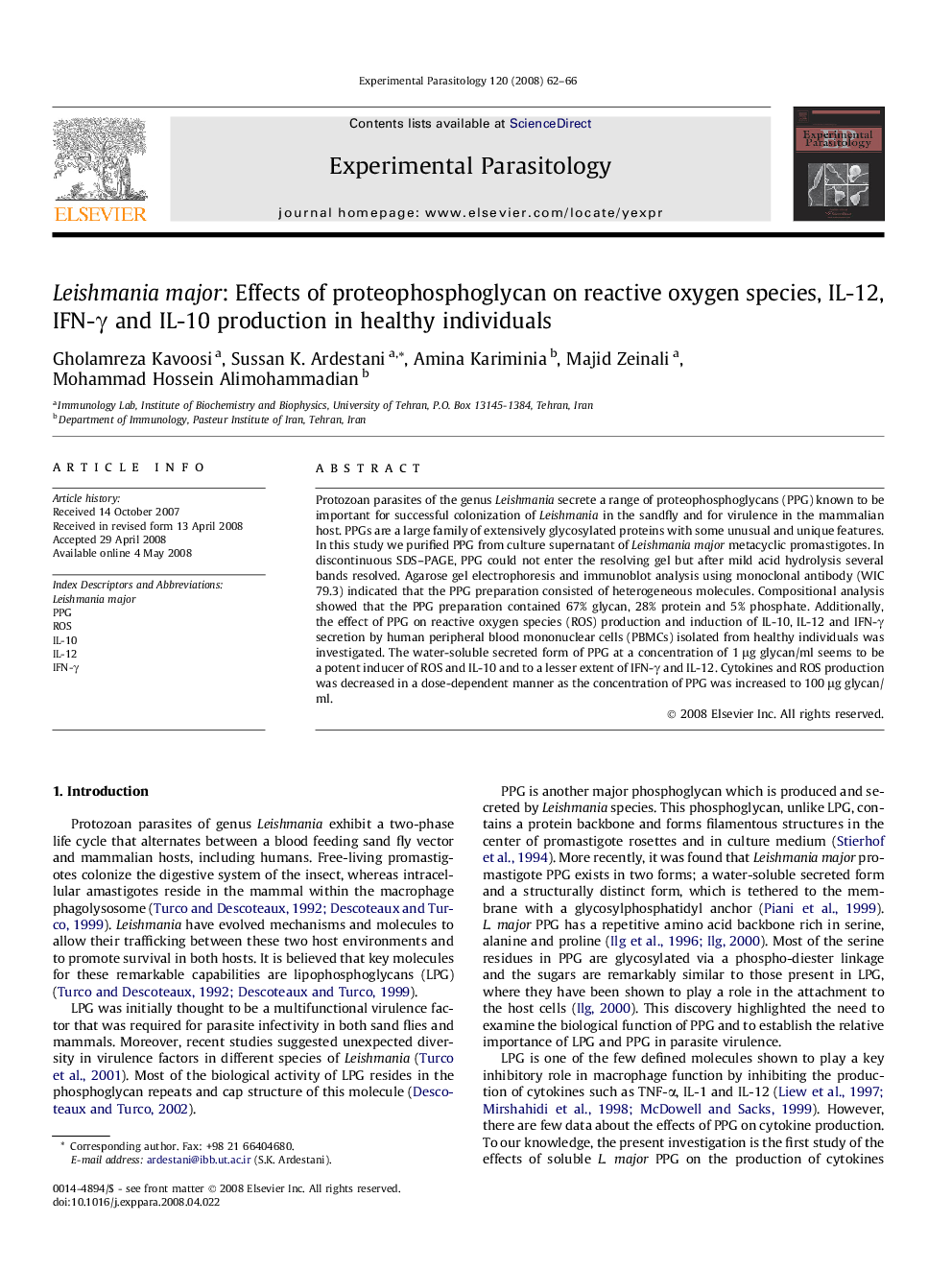| Article ID | Journal | Published Year | Pages | File Type |
|---|---|---|---|---|
| 4371497 | Experimental Parasitology | 2008 | 5 Pages |
Protozoan parasites of the genus Leishmania secrete a range of proteophosphoglycans (PPG) known to be important for successful colonization of Leishmania in the sandfly and for virulence in the mammalian host. PPGs are a large family of extensively glycosylated proteins with some unusual and unique features. In this study we purified PPG from culture supernatant of Leishmania major metacyclic promastigotes. In discontinuous SDS–PAGE, PPG could not enter the resolving gel but after mild acid hydrolysis several bands resolved. Agarose gel electrophoresis and immunoblot analysis using monoclonal antibody (WIC 79.3) indicated that the PPG preparation consisted of heterogeneous molecules. Compositional analysis showed that the PPG preparation contained 67% glycan, 28% protein and 5% phosphate. Additionally, the effect of PPG on reactive oxygen species (ROS) production and induction of IL-10, IL-12 and IFN-γ secretion by human peripheral blood mononuclear cells (PBMCs) isolated from healthy individuals was investigated. The water-soluble secreted form of PPG at a concentration of 1 μg glycan/ml seems to be a potent inducer of ROS and IL-10 and to a lesser extent of IFN-γ and IL-12. Cytokines and ROS production was decreased in a dose-dependent manner as the concentration of PPG was increased to 100 μg glycan/ml.
